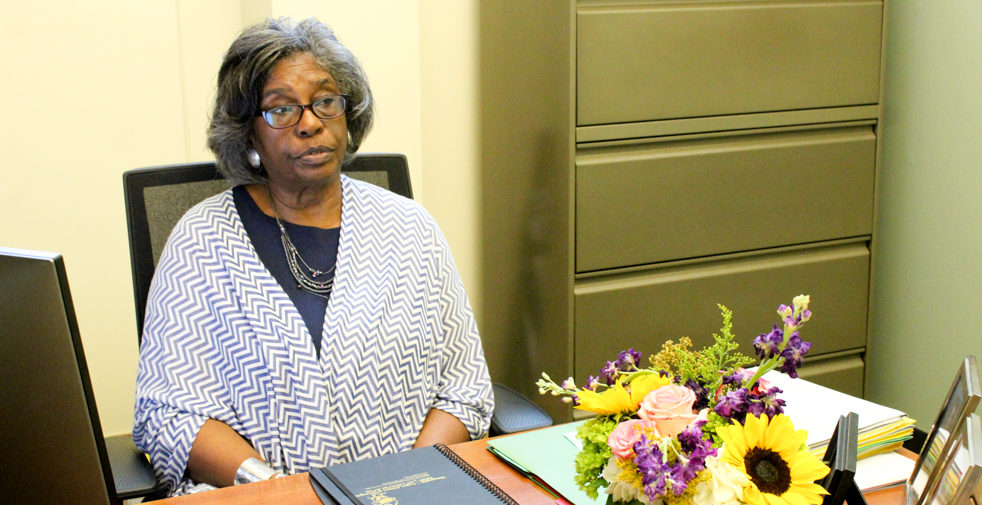Growing up in a small rural town in Georgia, young Jacqueline Jones Royster was constantly surrounded by “people dedicated to the welfare of their community.”
Specifically, growing up as a black girl in a small, rural town in Georgia, Royster was also constantly reminded of the powerful women that came before her and paved the way for her to be in the position she is today.
It was this upbringing that has inspired Royster to relentlessly continue her pursuit of knowledge while simultaneously giving back to the community.
“I’ve been a person who has always felt obligated to engage with whatever the community is that I’m a part of, whether it’s the campus community or the local community or the professional community,” said Royster.
Before serving as the Dean of Tech’s Ivan Allen College of Liberal Arts, Royster initially specialized in rhetorical studies and then went on to take the position of Executive Dean and Senior Vice Provost at Ohio State.
Despite her success in the realm of administration, Royster still considers herself a student at heart.
“Some people in my family say I went to school and never left,” said Royster. “Above all, I’m an academic — I don’t define myself as an administrator, teacher, learner or scholar.”
Today, the three main objectives Royster prioritizes in her life are: “teaching, scholarship and service.”
Although she never imagined she would end up becoming the dean of a liberal arts college — especially at a technical university like Tech — in 2010 Royster found herself taking that position and transforming the program.
“I consider myself to be the number one cheerleader for liberal arts at Georgia Tech, and not just for the cheerleading but for the advocacy, trying to make sure that if there are resources that we could garner, that I did my part in making sure that we had those resources if we had any chance of getting,” said Royster.
Over the course of her two terms as the Dean of Ivan Allen, Royster is commended for the growth of research in the humanities and an increase in visibility and coherence of the liberal arts community that taken its own shape alongside Tech’s engineering schools.
Royster’s initiatives enabled the liberal arts and social sciences to grow alongside the exhaustive list of STEM programs that Tech has to offer, providing the college of liberal arts with the leadership it greatly needed to help it progress in a fast-paced world where academia and technology are constantly changing.
“I always hope for positive, whatever it is” Royster said when asked what she hopes people remember about her from her time as dean. “You can’t control the way that people think about you or even what they say about you, but my hope is that however people feel about whatever it is that they think I did here, that they think it was a good thing.”
Despite her successful terms as dean, the nine years she spent in the position were not without their challenges.
“Being dean anywhere is a challenging job,” Royster said, but “being a dean who has a commitment to a quality of excellence and scholarship while also having a deep desire to be supportive of her family complicates it even more. So yes, I had lots of complications. And it was a constant struggle to balance in the way that I want it to be balanced. I would have quit long ago if I hadn’t struck that balance in the way that was satisfying enough.”
Part of what makes the balance worth it to Royster are the people — the students, faculty and overall whole community at Tech.
“It’s always about the people to me — I like students,” said Royster. “The people have been my inspiration and what is clear is that none of the things I am most proud of are things I’ve done by myself.”
Despite officially stepping down from her position as the Dean of Ivan Allen, Royster still remains a member of the faculty. She will also continue to work onher books which will focus on of the research she is conducting.
Royster has also continued working on her current projects: one on mapping the terrain African American women throughout the nineteenth century and another on examining the memoirs, letters and autobiographies of women during the Civil War.
However, after nine years, what Royster leaves behind cannot be measured in ratings, awards or books and other publications. Her legacy is not just that of her own accomplishments, but the accomplishments of the people who served under her and the people she served herself.
“It has been a pleasure being here, surrounded by such wonderful people who are doing such incredibly good work, and just being proud of being a part of that community,” said Royster.
“Helping to strengthen the community, to build a sense of community, to encourage people to be confident and proud about what we do here” is the legacy Royster wishes to leave behind.
Once her projects are complete, Royster plans on becoming an emeritus faculty member. Even though her term as dean might be complete, her legacy continues to live through the students she has impacted with her leadership.
